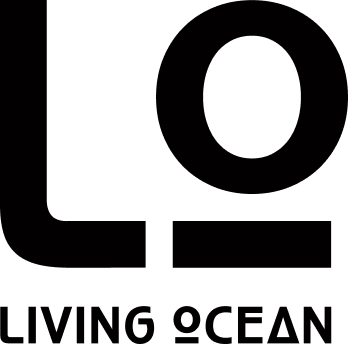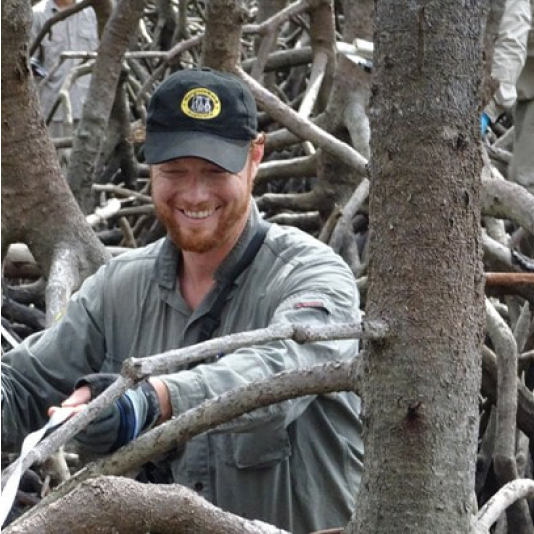
Careel Multilayered Coastal Assessment (CMCA)
Overview
The CMCA is a detailed study of the Careel marine environment, which is the most significant area of estuarine wetlands on the Northern Beaches.
The Careel Creek and Bay ecosystem has suffered major degradation over past decades. As an example, the salt marshes at the creek entrance that supported global migrations of many water bird species have shrunk to almost nothing. Posidonia seagrasses in the bay, critical for the nurture of marine life, are under severe threat. Poisonous chemicals leach into the creek from the unofficial rubbish tip lying beneath the innocent-looking playing fields. Plastic large and small washes down the creek onto the mangroves and into the bay.
There is enormous community concern.
An in-depth study is required to know what steps must be taken. Living Ocean has taken the initiative to mount this year-long effort, drawing in prominent scientists and a host of community volunteers.
We will ensure that our citizen scientists rigorously adhere to collection protocols supplied by involved scientists, ensuring that the scientists can develop valid conclusions from our data.
-
Our first aim is to collect data to gain a broad understanding of the impacts of pollution and human activities on the Careel ecosystem, at several levels:
Macroplastic and other rubbish
Microplastic pollution (i.e. plastic pieces between 1mm and 5mm in size)
Posidonia seagrass impacts
Mangrove health.
Our scientific colleagues then aim to review the data collected to understand the implications. Given the widespread community involvement, including schools, we also aim to measure changes in community attitudes brought about by the project – what worked and what didn’t. This will be of value for future projects.
-
A set of baseline data that can be compared to results in future years, to identify trends needing attention
A set of recommendations for government and community, outlining the severity of different issues and suggested mitigation actions
Presentation of recommendations to relevant parties and future collaboration with them.
Heightened community awareness of the environmental issues and how the community can help
A template for similar future projects in other marine locations
-
Scientific partners brought on board
On-site review by scientific partners
Scientific protocols developed
Public awareness raised
ublic meeting of volunteers held
Monthly site surveys underway
-
University of New South Wales
Macquarie University
AUSMAP
Tangaroa Blue
Earthwatch
Operation Posidonia
Contributing Scientists
Mangroves & Saltmarsh
Jock Mackenzie
Jock Mackenzie is a tidal wetland ecologist and science communicator with over 15 years experience in field ecology. About 15 years ago Jock discovered how truly amazing and useful mangroves are and since then he has developed a passion for their conservation and protection. He’s continually surprised by the fascinating complex interactions that occur in this environment and the functional benefits they provide to people in coastal areas.
His main interests are in developing an increased awareness of how people influence mangroves, the processes that detract from their capacity to provide the ecosystem services upon which we rely and what we can do to reduce those threats. In 2008 he co-founded MangroveWatch with Dr. Norm Duke to help address these issues and he is currently co-director and program coordinator. Through the MangroveWatch science-community partnership, he aims to raise awareness of the importance of mangroves, increase overall understanding of mangrove ecosystems, define local threats and processes and assess how people value mangroves in their local area. Earthwatch
Dr.Scott Wilson
Dr.Scott Wilson is a trained ecotoxicologist with over 25 years’ experience in environmental management, where he has researched a range of anthropogenic impacts to temperate and tropical ecosystems. Over these years, Scott has worked in academia and government and collaborated on projects across Asia Pacific and Europe worked with government, industry, education providers, NGOs and community groups on practical enviromental solutions.
He is also Research Director of the Australian Microplastic Assessment Project (AUSMAP), a Eureka prize winning nation-wide citizen science program that identifies hotspots of microplastic pollution, their sources and works with stakeholders to reduce harm to the environment.
Scott sees the value in communicating and raising awareness on these environmental issue with thebroader public. By working together on these issues, he feels we can all make a difference! Earthwatch
Micro & Macro Plastics
Jordan Jacutan
Jordan Jacutan is a marine debris and ocean governance researcher at UNSW, Sydney. Working at the interface of science and policy, Jordan assists governments (from local to national levels) in ‘making nature count’ to understand the value of our ecosystems and how we impact them. His PhD explores the role of Citizen Science in marine debris monitoring, and the transformation the data towards policy and management interventions. He has experience working with government and sectoral stakeholders on spatial planning, spatial data infrastructure, and environmental management projects within the Baltic Sea, Spain, Maldives, India, Fiji, and Australia.
Grace Nye-Butler
Grace Nye-Butler is a PhD student in her second year at UNSW studying in the Centre for Marine Science and Innovation. With a grounding in marine ecology, Graces research focusses on social ecological systems to help manage marine debris. Much of this work involves engaging with community science to foster environmental stewardship though education and outreach. With emphasis on science communication and engaging with interdisciplinary stakeholders her research examines effective behavioural change outcomes and citizen science applications for studying marine debris. By partnering with environmental organisations that provide marine debris education Grace is able to assess the outcomes of the educational programs to optimise their teachings and create maximum impact for sustainable behaviour change.
Posidonia Australias Seagrass
Clayton Mead
Clayton Mead is a research assistant at UNSW Sydney. Clayton’s work focusses on restoration of threatened marine ecosystems, specifically seagrass meadows and seaweed forests. He is particularly interested in how restoration of marine ecosystems can benefit both people and the environment. Clayton is a passionate science communicator and can often be found enjoying the ocean both for work and for fun.
Professor Adriana Vergés
Professor Adriana Vergés is a marine ecologist based at UNSW Sydney. She is passionate about communicating science and has published over 85 peer-reviewed articles and book chapters. Her research focuses on the impacts of climate change in our oceans and on developing restoration solutions to rewild our coastlines. Adriana is a lead investigator of Operation Crayweed and Operation Posidonia, award winning projects restoring missing seaweed forests and seagrass meadows. She was awarded a Green Globe Award for Environmental Impact in 2017 and the UNSW Emerging Thought Leader Prize in 2019.











